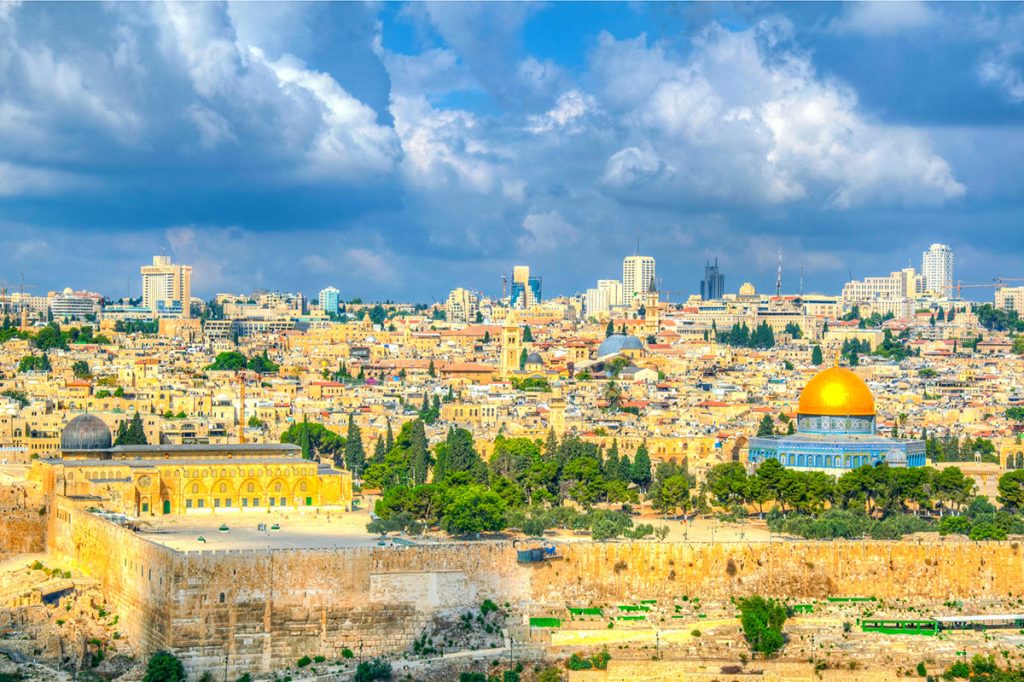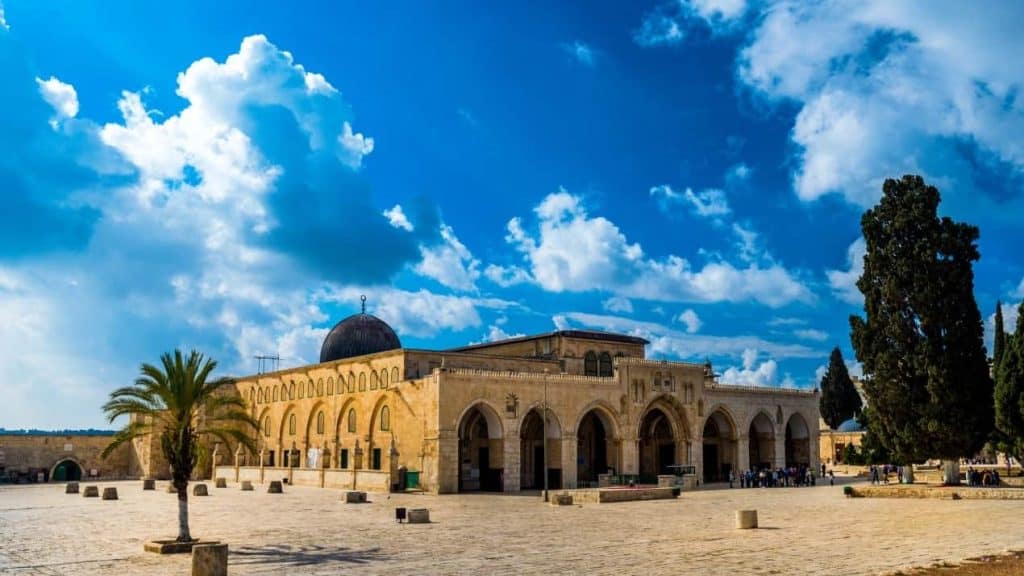The Sanctification of Jerusalem in Islam is quite an interesting subject. Jerusalem is the third holiest city in Islam. Though the Quran does not mention Jerusalem by name; it has been understood by Islamic scholars since the earliest times that many passages in the Quran refer to Jerusalem. Also, the city is mentioned many times in the hadith. Moreover, some academics attribute the holiness of Jerusalem to the rise and expansion of a certain type of literary genre; known as al-Fadhail, or history of cities.

The Fadhail of Jerusalem inspired Muslims, especially during the Umayyad period; to embellish the sanctity of the city beyond its status in the holy texts. Others point to the political motives of the Umayyad dynasty which led to the sanctification of Jerusalem in Islam.
Political Inclinations Not Religious Ones
In 715, the Umayyads did something very clever. To build up the prestige of their domain, they built a mosque on top of Temple Mount and named this one the “Furthest Mosque” the exact same name written in the holy Koran. And in so doing, the Umayyads forced the city of Jerusalem to assume a role in the life of the prophet Muhammad. A role which it never had.
Islam

In other words, the sanctification of Jerusalem in Islam is based on the Umayyad building program. And their cleverness in bringing about an association between the al-masjid al-Aqsa mentioned in the Koran and the mosque they built on the Temple Mount and purposely named Al Aqsa, precisely so that it would assume a measure of Koranic holiness it did not have.
On my guided tours of Jerusalem, I like to take my guests and show them the Holy sites. For example, the Golden Dome and the Al-Aqsa Mosque. Both sites are important to Islam and make Jerusalem super holy for Muslims around the world.

